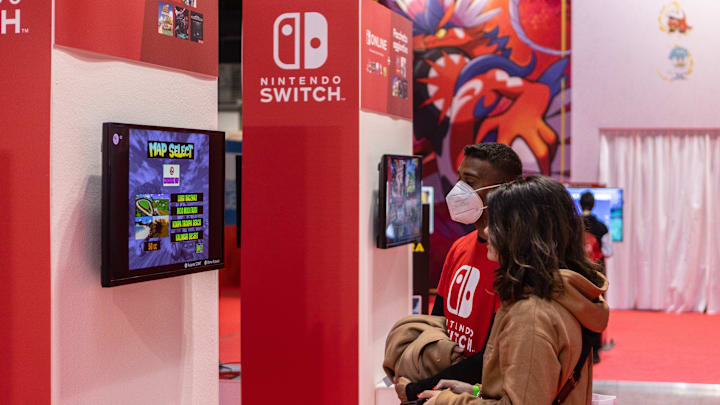The gaming world is buzzing with excitement over the latest rumors about the Nintendo Switch 2. With insiders hinting at an imminent reveal and features like backwards compatibility, fans and industry experts are speculating on what this new hardware could mean for Nintendo and the broader gaming market. As anticipation reaches a fever pitch, the possible unveiling of the Switch 2 is expected to have far-reaching consequences for game developers, consumers, and the entire gaming ecosystem.
One of the most significant rumors surrounding the Switch 2 is that it will support backwards compatibility, allowing players to carry over their existing library of Switch games.
The rumors of a September reveal and a possible March 2025 release are stoking speculation about how Nintendo will navigate the hardware production process. Industry insiders have pointed to significant increases in production spending by Hosiden, a key Nintendo assembler, as evidence that something big is in the works.
The unveiling of the Switch 2 could shake up the competitive landscape between Nintendo, Sony, and Microsoft. Both PlayStation and Xbox have embraced high-powered consoles with significant graphical capabilities, while the Switch has carved out its niche through portability and unique first-party games. If the Switch 2 brings upgraded hardware, it may push these competitors to rethink their strategies.
Nintendo’s fanbase is loyal, but with loyalty comes high expectations.
The rumors of a Switch 2 reveal have set the gaming world ablaze, and if the speculation proves true, Nintendo is poised to make a major impact on the games industry once again. From backwards compatibility to developer opportunities and market disruption, the potential launch of the Switch 2 could reshape how we play and create games for years to come.
The release of a new console often creates a ripple effect across the industry. As the Nintendo Switch 2 enters the market, the existing Switch could see price cuts, special edition bundles, or new marketing strategies to appeal to different demographics.
Nintendo is known for playing the long game. Its consoles typically have a long lifespan, and it tends to focus on innovation rather than competing directly with the horsepower of Sony and Microsoft’s consoles. The release of the Switch 2, with its anticipated features like backwards compatibility and possible performance upgrades, could indicate that Nintendo is planning for an extended cycle with this hardware.
One of the biggest concerns around the launch of a new console is the potential for scalping—where individuals or groups purchase large quantities of consoles to resell at inflated prices. The PlayStation 5 and Xbox Series X launches were marred by such issues, and Nintendo will need to navigate this carefully to ensure that fans can get their hands on the Switch 2 at retail prices.
Nintendo has a long history of revolutionizing the gaming industry, from the NES to the Wii, and now the Switch. The rumored Switch 2 is poised to build on this legacy, possibly becoming one of the most important milestones in the company’s storied past.
As the rumors surrounding the Switch 2 reach a boiling point, it’s clear that the gaming industry is on the edge of a significant shift. If Nintendo’s new console lives up to the hype, it could reshape the market by introducing upgraded hardware, backwards compatibility, and continued innovation in both game design and player experience. Developers, competitors, and fans alike are watching closely, eager to see how the next generation of Nintendo hardware will influence the future of gaming.
Whether the rumors of a September reveal and a March 2025 release prove true or not, one thing is certain: Nintendo is once again poised to make a major impact on the gaming world, and the Switch 2 could be the console that defines the next era of gaming.
One of the defining features of the Nintendo Switch was its successful blend of first-party titles with increased support from third-party developers. As the industry shifts its attention to the rumored Switch 2, these developers are likely to play a critical role in determining the console’s success.
Cloud gaming is becoming an increasingly important part of the gaming landscape, with major companies like Microsoft (via Xbox Cloud Gaming) and Sony (via PlayStation Now) pushing to integrate the technology into their ecosystems. Nintendo has thus far been cautious in this area, but the Switch 2 could signal a shift.
The gaming landscape has evolved dramatically since the original Switch’s release in 2017. eSports, streaming, and content creation now dominate the industry, and Nintendo has a chance to capitalize on these trends with the Switch 2.
With rumors swirling about the Switch 2’s capabilities, Nintendo will need to carefully manage fan expectations. The original Switch was a runaway success, but the gaming community is now accustomed to rapid technological advancement and often demands major upgrades in each new console generation.
The potential release of the Switch 2 signals more than just an upgrade for Nintendo—it represents a pivotal moment in the evolution of console gaming.
As Switch 2 rumors continue to swirl, the gaming world is bracing for what could be one of the most impactful hardware releases in recent history. Whether it’s through backwards compatibility, improved hardware, or integration with the broader gaming ecosystem, Nintendo has the potential to once again reshape the industry.
While challenges like production issues, scalping, and managing fan expectations loom, Nintendo’s track record of innovation and industry-defining products suggests that the Switch 2 could usher in a new era of gaming. Developers, publishers, and players alike are eagerly awaiting the official reveal, hoping that Nintendo’s next console will live up to its storied legacy and push the boundaries of what’s possible in the world of gaming.
